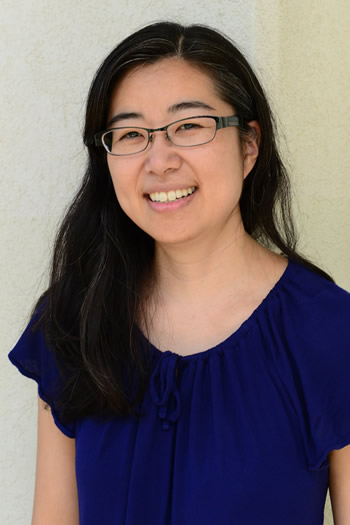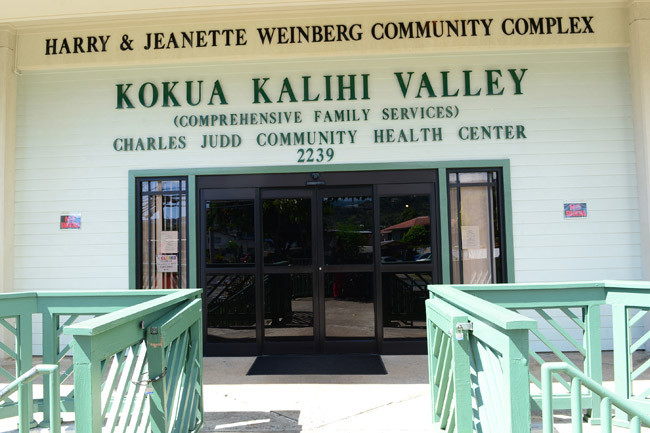Using The Law To Assist Immigrants
Mark Twain once remarked, “History doesn’t repeat itself, but it does rhyme,” and this sentiment can be seen most plainly in our treatment of immigrants in this country.
While each of us has immigrant roots in our family, we seem to forget our own histories and treat subsequent immigrants as shabbily as our forefathers were treated. The English castigated the Irish, Italians and Poles, who turned up their noses on the Japanese and Chinese.
Now the ire has turned against the Hispanic population.
Locally, where even Native Hawaiians actually arrived on boats, the newest group to experience this discrimination is the Chuukese or Micronesians, who often have their legal rights trampled, rents unfairly raised and are profiled – such as when Darrell Wong of the city prosecutor’s office earlier this year asked for the harshest sentence possible to “send a message to the Micronesian community.”
One young woman has heard enough of this historical poetry and is doing her part to change the storyline. Her name is Dina Shek, a UH Richardson Law School graduate, conservatory-trained cellist and – most important to her – daughter of two immigrants.
In 2009 she formed the Medical-Legal Partnership for Children in Hawaii, which works out of Kokua Kalihi Valley community health center to provide an advocate and counselor for this severely underserved community.
She likes to think of it as “preventative law” in that, if she can help them early on, they can prevent big legal entanglements down the road.
“In the beginning, I used to hear a lot of, ‘She’s not that kind of lawyer,’ because low-income families rarely get lawyers unless something bad is happening,” says Shek, who moved here from San Francisco about a decade ago. “But within six months, families were saying, ‘Hey, the lawyer lady is here’! I tell them to ask your questions early, don’t ignore your mail, it is OK if you don’t know, come ask us for help. A lot of the informality of the families (extended family raising children) isn’t a problem until it is a problem – they will try to enroll the kids in school or sign up for health care and they don’t have the guardianship or the power of attorney, so we will intervene to make sure they have the right documents.”
The idea of a legal-medical cooperation is not new to the country – Shek modeled hers after Boston Medical Clinic, which opened in 1993 – but it is the first in Hawaii. While it makes sense to bundle these two types of aid, historical animosity often has prevented such interdisciplinary collaborations.
“We would see a lot of professionals, and the communication would just not be there,” says Shek, whose office is nestled between the two Kuhio Park Terrace towers. “But for us it is really important, especially with doctors and lawyers who are traditionally seen as at odds, but when we are focused on families, everything changes.”
A lot of the services they provide would seem below most lawyers: help with the reading of letters, enrolling kids in school and even just sitting in on phone calls. But Shek says that it is amazing how different a response they get when they know a lawyer is involved.
“I tell all my law students, we often act more like social workers than attorneys, so don’t expect that all of your work is going to be your perception of what a lawyer does. But this is the ‘counseling’ part of being a counselor,” says Shek. “You are trying to shore them up so these problems don’t become bigger problems.”
This philanthropic bent toward other immigrants came to her when she was working as a community organizer in San Francisco at the turn of the millennium. It was her job to orchestrate the Day of Remembrance celebration that marks the memory of Japanese internments and redress.
Her mother was interned as a child, and the shoddy treatment of the Japanese during World War II had always struck a chord with her. But in preparing for the celebration she realized that something was not right. Though her people had found their place in American society, there still were others who were being treated unfairly.
So instead of a commemoration of what the Japanese-Americans had accomplished, she changed the theme to “Remembrance Through Action,” exhorting the crowd that “even though we had rightly fought for and achieved redress, there’s so much more that we need to be doing for others in fighting for justice.”
She didn’t know it at the time, but just this slight change in her perception altered the entire arc of her life. The responsibilities of the people who have risen up was not to lord over those who have not, but rather to extend a hand to help others join them.
“We are trying to fight for justice, fight for the tenets of democracy – pushing society so that it is a better community,” says Shek, “and a lot of that comes from my family history and knowing how far the Japanese-American community has come through social justice work, and wanting to be part of that legacy.”
The biggest obstacle she has currently is financial, though she has been blessed with grants from the likes of Hawaii Justice Foundation, Hawaii Community Foundation and William S. Richardson School of Law. She still is about $80,000 short of what she needs by the end of the year to keep aid at its current level. The easiest way for people to help is through the UH website at law.hawaii.edu/mlpc, where they have a click-to-donate button.
Regardless of these obstacles, Shek plans to keep moving forward, eventually hoping to have a medical/legal partnership at all 13 community health centers across the state.
“Everything in my life has built up to this,” says Shek. “This is my baby that everything I have learned is to coalesce around. My parents unfortunately taught me I could do anything I want. My mother always laments, ‘You have how many degrees and this is what you make?’
“But I don’t think I would be happy doing anything else.”







